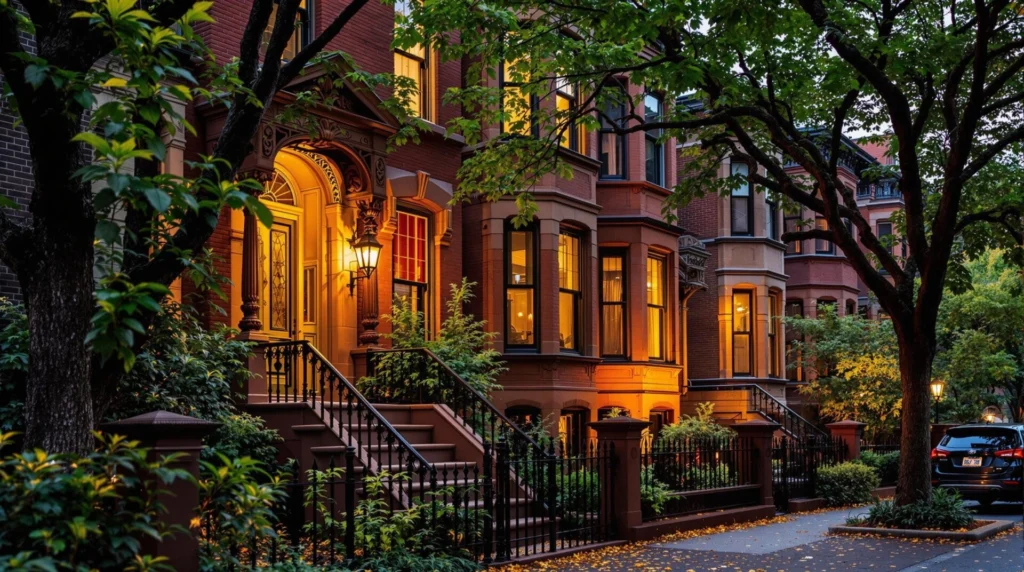Key Takeaways
- Ultra-luxury real estate surged in 2024, with a 350% increase in sales and over $31.39 billion in transactions, concentrated in New York, California, Florida, and Colorado.
- The luxury boom is pushing up home values, expanding rental demand, and creating new investment opportunities in emerging markets like Colorado Springs and Durham-Chapel Hill.
- Investors can capitalize on the trend through buy-and-hold strategies, short-term rentals, and high-end renovations in high-growth markets.

A Market on Fire! The Billion-Dollar Boom Has Begun
The ultra-luxury real estate market experienced a monumental surge in 2024, with record-breaking sales reshaping investment strategies across the U.S.
According to the 2024 Ultra-Luxury Report from Compass, a total of 1,744 homes priced at $10 million or more were sold last year, contributing to an astounding $31.39 billion in transactions.
Even more striking, just 10 elite markets across four states—New York, California, Florida, and Colorado—accounted for nearly $23.2 billion of that total.
This unprecedented spike represents a 350% year-over-year increase, demonstrating the overwhelming demand for luxury real estate and its profound impact on the broader market.
As high-net-worth buyers flood the market with cash offers and record-setting deals, investors at all levels must reassess their strategies to capitalize on the evolving dynamics of 2025.
Growth of Million-Dollar Home Sales
Recent reports indicate that more than 300,000 homes sold for over $1 million in 2024, a sharp rise from the 275,000 homes sold in the previous year.
In the ultra-luxury market, transactions exceeding $10 million saw remarkable activity:
- Manhattan: $7.5 billion in sales from 307 properties
- Greater Los Angeles: $3.3 billion across 190 high-end homes
- Miami-Dade & Palm Beach County: A combined $5.2 billion in ultra-luxury transactions
- Orange County, Aspen, the Hamptons, Silicon Valley, Southwest Florida, and San Diego also reported billion-dollar growth
Although there have been mass delistings as of late, these trends signal a continued demand for high-end properties, shaping the broader real estate landscape and creating new dynamics for investors.
Impact on the Real Estate Investment Market
As luxury home sales rise, their influence extends beyond the elite market.
Key developments include:
Increased Home Prices Across the Market: The growth in high-end sales is driving higher property values, pushing mid-tier homes into luxury pricing brackets. Cities such as Colorado Springs and Durham-Chapel Hill have experienced a notable increase in million-dollar home sales.
Expanding Rental Market Demand: As affordability decreases, rental demand is rising, creating opportunities for real estate investors. The increased cost of homeownership is driving more individuals into the rental market, benefiting buy-and-hold investors in appreciating areas.
New Luxury Markets Emerging: While New York, Los Angeles, and Miami remain dominant luxury hubs, new markets are developing. Cities such as Aspen, Southwest Florida, and Silicon Valley are experiencing heightened demand, offering fresh investment opportunities.
Investment Strategies Amid the Luxury Market Surge
Real estate investors can leverage the luxury boom through various strategies:
Short-Term Rentals in High-Growth Areas: Markets such as Palm Beach, Aspen, and San Diego are seeing an influx of luxury buyers, increasing demand for premium vacation rentals.
Buy-and-Hold Properties in Emerging Markets: Investors can capitalize on rising property values by acquiring homes just below the luxury threshold in markets experiencing significant appreciation, such as Colorado Springs and Durham-Chapel Hill.
High-End Renovations for Increased Property Value: Properties featuring modern upgrades, smart home technology, and premium finishes appeal to buyers willing to pay a premium in high-demand markets.
Future Outlook for the Luxury Real Estate Market
The ultra-luxury housing sector remains strong, with continued interest from global investors, increasing wealth concentration, and real estate’s role as a safe-haven asset.
However, factors such as interest rates, economic conditions, and supply constraints could influence future growth trends.
Assessment
As high-end property sales continue to surge, the luxury market’s influence extends beyond ultra-wealthy buyers.
RELATED CONTENT
Investors positioned in emerging markets or leveraging rental opportunities may find new avenues for growth in 2025.
With strategic investments and market awareness, real estate investors at all levels can navigate the shifting landscape and capitalize on the evolving real estate trends.





















